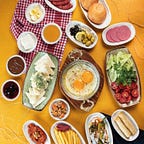Aspects of Malaysia’s etiquette and customs: customs and taboos
Long sleeved Buddy
In formal occasions, Malaysian men usually wear national dresses or suits. The national costume long sleeved badi shirt, a kind of long sleeved shirt made of batik, is thin and cool, and has become the national costume of Malaysia. The traditional dress for men is a collarless coat, trousers, a short gauze cage around the waist, a “Songgu” brimless hat and leather shoes. Malays also like to wear short swords, which symbolize strength, courage and wisdom.
Women’s traditional dress is a blouse and a sarong, which is as wide as a robe, and the head is covered with a monochrome bright colored scarf. The common characteristics of Malay men’s and women’s clothing are broad, bright colors, unique patterns and beautiful styles. Malays wear traditional clothes only when visiting relatives and friends or on major festivals. Except for members of the royal family, they generally do not wear yellow clothes in Malaysia. The majority of Chinese people wear suits, and women like to wear cheongsam.
Catering methods
Malay people like spicy food and should not be too salty. Like to eat mulberry cake — fermented shrimp into shrimp paste, mixed with pepper, mashed in mortar, and poured with lime juice. Rice, mulberry cake and vegetables are the most basic meals, plus onions, garlic, ginger, spices, small dried fish, etc. Love to use curry powder, pepper and other condiments. The most famous flavor food is called “Satay” — charcoal barbecue kebabs with orange satay sauce, which is as delicate as cream, spicy, salty and sweet. You can see more restaurants in Malaysia at yummyadvisor.
Muslims do not drink alcoholic beverages. Hindus and Buddhists don’t eat beef. Malays and Indians eat by hand. They usually use knives, forks and spoons at Western style banquets or in high-end restaurants. Those who eat with their hands must wash their hands before and after meals. At the same time, there are pots and jars with clear water on the table for use at any time. Before taking food, guests will put their hands in the water jug to wet out of politeness.
Malays are used to sitting around on the carpet for dinner. Men sit cross legged while women kneel. Only elderly women can sit cross legged. At a banquet, the host likes to treat guests with ice water or tea. In addition, the local people have the habit of chewing betelnut. When guests visit, they first hold a betelnut plate and invite them to chew betelnut together.
Most Chinese are mainly Chinese food, and the local Chinese food is close to Chinese Cantonese food. However, there is no difference between hot and cold Malay Chinese food, most of which is hot food. “Meat and bone tea” is a delicacy created by local Chinese. Its main raw materials are pork chops, accompanied by Chinese herbal medicines such as Angelica.
Salute to guests
The traditional greeting etiquette is to rub each other’s palms, then fold your palms together and touch your heart. Muslims touch their chests and bow, that is, bend down and bow. At the same time, they put their right hand on their chest and say “Salam”. But now, whether Malay, Chinese or Indian, men are used to shaking hands. When a man meets a woman, a man can only hold her hand when the woman reaches out her hand.
The elder should not be called “you”, but “sir”, “madam” or “lady”. Malays usually have only their own name, but no fixed surname. Their sons take their father’s name as their surname, and their fathers take their grandfather’s name as their surname.
When introducing people, first introduce men to women, young to the elderly, and low to the high. When indicating places, objects or others, do not use the index finger, usually with the thumb of the right hand, and the other four fingers tightly.
Pay special attention to the neatness of clothes in social occasions, and take off your shoes before entering the inner hall and put them at the stairway or door. The host is very warm to the visitors, and often serves them with cakes or snacks, tea, coffee and ice water. Guests should be generous in receiving hospitality. If they do not eat or drink, they are considered to be disrespectful to the host.
Customs and taboos
Malays show filial respect to their parents. When sitting on a bench in front of their parents, they should not spread their legs or cross their legs. When sitting at a table, they should kneel facing their parents and not cross their legs.
In Kuala Lumpur, the capital, people who throw litter will be severely punished. The left hand is usually used in the bathroom, so it is considered unclean. It is disrespectful to feed or pass something to others with your left hand. They taboo physical contact of the opposite sex, and public intimacy between men and women, such as hugging and kissing, is immoral. Do not touch the head and back of Malays, especially the head of children. It is considered that touching the head and back will bring bad luck and is a personal violation. Do not aim the soles of your feet or shoes at others, or touch anything with your feet.
Polygamy is not prohibited in Malaysia, so it is not allowed to discuss other people’s housework. It is also impolite to ask someone about their age. Do not open the gift package in front of the giver.
Malays believe that dogs are dirty animals, which will bring bad luck to people and make people bored; The tortoise is regarded as an unlucky animal and a symbol of “pornography”, “aphrodisiac” and “insult”.
